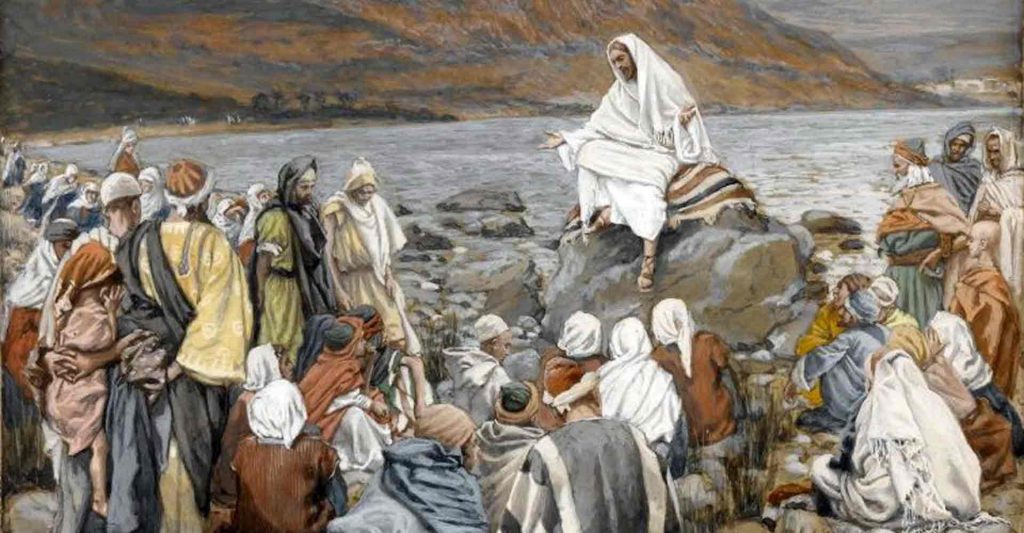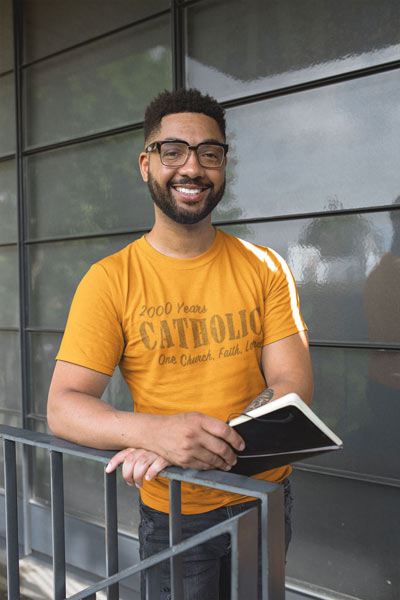
Jesus’ parables are meant to communicate divine truths and draw us into the mystery of God.
By Deacon Frederick Bartels
26 January 2018
In an excerpt from today’s gospel (Mk 4:26-34), we find Jesus’ parable of the mustard seed:
To what shall we compare the kingdom of God, or what parable can we use for it? It is like a mustard seed that, when it is sown in the ground, is the smallest of all the seeds on the earth. But once it is sown, it springs up and becomes the largest of plants and puts forth large branches, so that the birds of the sky can dwell in its shade.
Sometimes people protest against the Bible as the inspired word of God and its inerrancy because it is not scientifically accurate in every sense. This is the case with the mustard seed parable. A mustard seed is not actually the smallest of seeds, nor does it grow into the very largest of plants. Consequently, some people lay the charge that Jesus was wrong and thus he cannot really be God in the flesh. God would not make such a mistake, they reason. What do we make of this? Was Jesus ignorant of the scientific truth about mustard seeds?
First, let’s begin with scripture in general. The claim that it cannot be true because it does not always hold up scientifically is based on a misunderstanding of the intent of the sacred authors and the ultimate purpose of the Bible. The sacred authors of the Bible never intended to teach scientific fact. Science as we know it today did not exist in their time and cultures. Therefore, the purpose of the Bible has nothing to do with teaching science; it’s ultimately about helping us to attain salvation in and through Jesus Christ. Pope Benedict XVI noted that the Bible is about our struggle with God and his struggle with us. What he meant is that scripture teaches us about God and also about ourselves. It’s the story of our journey into God and his reaching out to us through the Son of God incarnate, Jesus Christ. We frequently refuse to listen to God; consequently, there’s a struggle involved. In many places, the sacred scriptures depict this “struggle” by narrating the details of some of the ugly and brutal aspects of humanity.
Read more about how to interpret sacred scripture here.
But was Jesus wrong about mustard seeds? If we’re worried about that, we’re missing the whole point. Jesus’ parable of the mustard seed is not intended to make scientific horticultural statements. He was not interested in teaching the facts about mustard seeds. Rather, he used the example and imagery of mustard seeds and the bushes they produce to make a metaphorical comparison with the kingdom of heaven. The parable’s purpose is to communicate spiritual truths for the sake of our salvation. Parables accomplish this through the use of imagery, symbolism, simile, and metaphor.
Parables are inexhaustible sources of spiritual, moral and religious truths. And they’re mysterious, as God is mystery. It’s important for us to realize that the parables of Jesus are meant for all of us, right here, right now. It’s also important to try to understand how the hearers of Jesus might have understood these parables within their particular historical context.
So what is Jesus teaching us through this parable?
Jesus is depicting how the kingdom of Christ begins with a small band of disciples (a seed God has both made, planted, and guides by his grace) that grows through preaching the Word into the universal and worldwide Church (Ignatius Study Bible, NT, 73). Jesus’ use of a seed that grows into a large bush metaphor draws on O.T. oracles. For example, Egypt and Israel were portrayed as “kingdoms that grew into mighty trees” (Ibid).
We see, then, that those people listening to Jesus tell this parable would likely have noticed the metaphorical comparison he was making between mustard seeds and the growth of earthly kingdoms in contrast to the growth of his heavenly and everlasting kingdom.
Further, as the Church grows so too does the kingdom of heaven because the Church is the kingdom of heaven on earth in its seed and beginning. That is why it is important to study, learn one’s faith more thoroughly, and evangelize. Through evangelization, we populate and expand the kingdom of Christ.
To read more about the mystery of the Church and the answers she brings to humankind, go here.
Christ’s peace.

Deacon Frederick Bartels is a member of the Catholic clergy who serves the Church in the diocese of Pueblo. He holds an MA in Theology and Educational Ministry, and is a Catholic educator, public speaker, and evangelist who strives to infuse culture with the saving principles of the gospel. For more, visit YouTube, iTunes and Twitter.




Leave a Reply